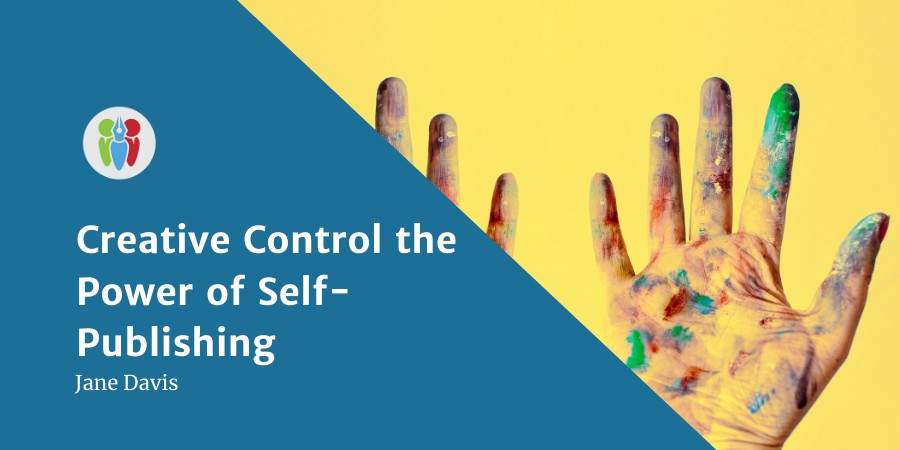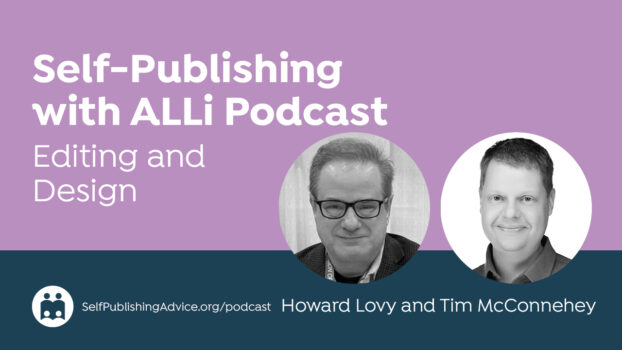In an encore presentation of the cover feature from the Q2 2019 Edition of The Indie Author member magazine, award-winning author and ALLi member Jane Davis shares with us the main reason she is proud to self-publish: creative control.

British indie author Jane Davis
Creative Control the Power of Self-Publishing
In her wonderful memoir of the years she spent working in publishing, Diana Athill wrote,
“The person with whom the writer wants to be in touch is his reader: if he could speak to him directly, without a middleman, that is what he would do.”
The self-publishing revolution made this possible. It’s what any self-respecting control freak would do. Why, then, do I dislike the term ‘self-publishing’ so much? Part of my wariness comes from dismissive reactions. Oh, you self-publish. I’ll admit it, when asked, “Who publishes you?” (Despite the suggestion that readers don’t care, this is one of the first questions that crops up.) I can almost sense a semi-apologetic tone creeping into my voice, when apologise is the last thing I want to do.
Indie Power in the Music Industry
In the music business, a declaration of being ‘indie’ is one part protest statement, one part battle cry. Take the recent headline, Artists the Music Industry Will Never Own. Add a few powerful statements.
“As an artist, it’s important to stay independent. For me, it’s all about my vision.”
“I didn’t want a bunch of men in suits deciding how I should release my music.”
Take singer-songwriter Gerry Cinnamon who, in five minutes and without a record deal, sold out Glasgow’s Barrowlands with a single Facebook post. These musicians’ souls are not for sale. What you’re going to get is their music the way they wanted it to be heard. Undiluted and authentic.
Why then, in publishing, is being indie still seen as a consolation prize? It’s a question of perception rather than quality. The judges of The Selfie Awards described the shortlisted titles as “every bit as good as any fiction being published in the UK today.” I think the name we call it by is to blame.
Is the Trad Industry All Bad?
Smash all the Windows was my seventh self-published title, but my eighth novel. Unless you’ve experienced traditional publishing, I don’t think you can understand how restrictive it is. Agent’s rejection letters had warned how difficult it would be to get a publishing deal. You’re delving into deeper psychological territory than most fiction dares. It’s really commendable, and on a personal note, I do find it frustrating how commercialised the market is at times. I expected to be asked to make changes. A change of title perhaps, but moving the ‘big reveal? And a new ending? If I’m honest, I think my business background (an advantage in self-publishing) made me too willing to compromise. Sit on a board of directors for sixteen years, and you become used to arguing your case, understanding there will be a majority vote and it might not go your way.
We compromise because we’re new to the publishing game, assuming that the ‘people in suits’ understand the market, but there are countless examples of where they get it wrong. The first story my editor shared with me was how she’d rejected The Kite Runner. Not because she didn’t love it – on the contrary. But she didn’t think readers in the UK would be interested in a story based in Afghanistan, and she wasn’t alone. That manuscript passed across countless desks before someone realised its potential. My dog-eared copy says that over eight million readers have expanded their world view by walking in the shoes of a young boy called Amir.
Unless you have the confidence to hold your ground, that book with your name on the cover – the glittering prize – may not feel like your own. Your characters become strangers.
And yet it’s impossible to regret the experience of having been under contract. It gives you the opportunity to see the process — the edit, cover design, production, positioning, marketing. All this makes you more confident when you take your turn in the driver’s seat.
The Power of Creative Control
This brings me to the second reason I resist the term ‘self-publishing’. For me, it suggests a do-it-yourself (DIY) approach. Self-publishing isn’t simply a case of writing a book then pressing a few buttons! Publishing Perspectives described it as being “your own creative director,” music to the ears of control freaks like me. In order to keep your artistic identity, you assemble a team of professionals who share your vision for your book and will challenge you so that the final version is the very best it can be. Lonely months of writing aside, the ‘self’ in self-publishing is that you alone decide when the book is ready for release. It’s your reputation on the line.
Why not call ourselves ‘independent publishers’? Whilst we indies tend to think of two distinct camps — traditional and independent — sub-divisions exist. In recent years, one of the key success stories has been the rise of independent presses, who put story before profit and have taken over the essential role of nurturing new talent.
Kevin Duffy of Bluemoose Books makes this distinction:
“Corporate publishing is ultimately beholden to its shareholders. Independents to their readers.”
In terms of values, self-publishers are closely aligned with independent presses, yet we differ because it’s our own work we publish. But ‘indie author’ only describes a small part of what we do. I can’t find a solution, perfect or otherwise. I know what I stand for, but I don’t have a name I can say with pride. For now, my Twitter profile reads: Author. Publisher. Your basic control freak.
Indie Authors Should be Proud @janedavisauthor #selfpublishing #IARTG #ASMRG #amwriting #writingcommunity #writetip Share on X
OVER TO YOU
What do you call yourself? How do you feel about the term ‘self-publishing'?
If you enjoyed this post, you might like these from the ALLi archive:





You’ve perfectly described that moment following, “Who’s your publisher?” for what I imagine to be most self-published writers. And you are so right, “indie” sounds so much better. However, I think that if I responded with “I’m an indie author,” it would only prolong the awkward moment as a longer explanation would be involved.
Your concept of control is also so pertinent. Why should one change a story just to fit an industry whose principal motivation is sales?
In the end, I think it’s all about being seen as legitimate and feeling legitimate, which is difficult to do in a world controlled by traditional book publishing. So when someone asks me, “Who’s your publisher?” I usually respond with “I am,” as if I’m one of those wealthy 19th-century individuals who takes control of my destiny. I can’t help how the questioner pigeonholes me, but I can hold my head up and be confident of what I’ve produced.
Jane, such a good article and such valid points made. Thank you.
Brilliant post Jane. Thank you for writing this. It was precisely what I needed to read this morning. All the best to you!
Yes, this is an important issue. Branding and positioning make all the difference in consumer perception. To date, little has been done to unify the branding of the new publishing industry that has blossomed with print-on-demand presses. I believe I may have a solution.
The primary industry is called traditional publishing. This new, innovative industry should be named “contemporary” publishing because that is what it is. Contemporary publishing embraces all the innovations of the past 10 years or so—ebooks, POD softcover and hardcover books which are accomplished bypassing traditional methods of publishing that involve literary agents and publishing contracts.
Contemporary publishing should be positioned as the methods used for authors to maintain creative control over their projects. Ergo, traditional publishing is a loss of control, and contemporary publishing is important maintenance of creative control.
Under the umbrella of contemporary publishing comes authors who work with solutions-oriented companies like Lulu and BookBaby, and authors who outsource steps in the process but control each step themselves. I dislike the “hybrid” publishing term because it lacks meaning.
Contemporary publishing is a scary place to visit at first. It would behoove us all to make it as user friendly as possible with some agreement on terms, at least.
Yes, I agree that independent publisher is the term I prefer. Good to have this issue highlighted.